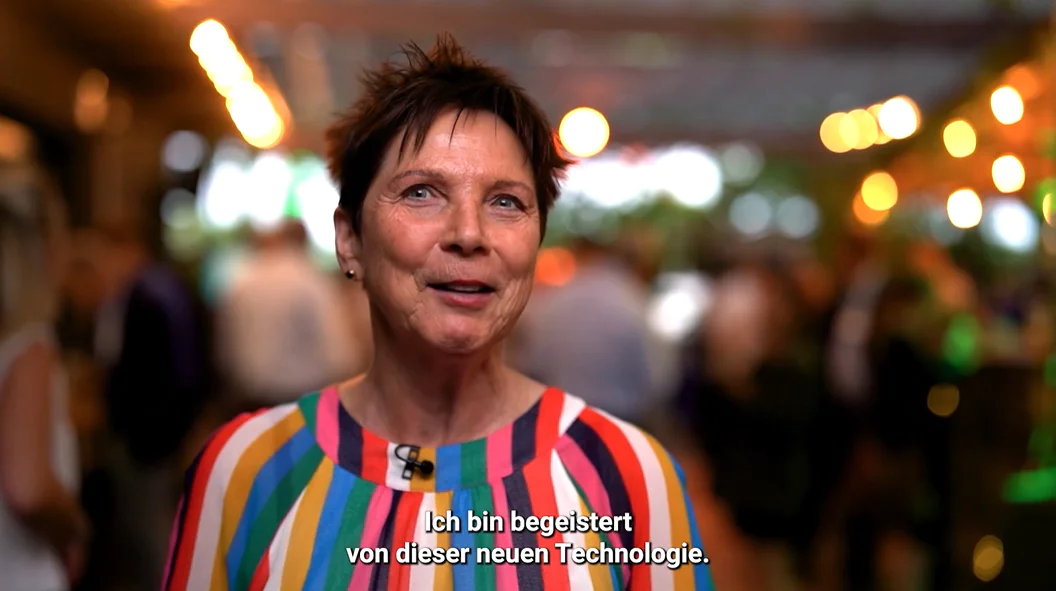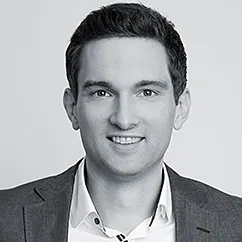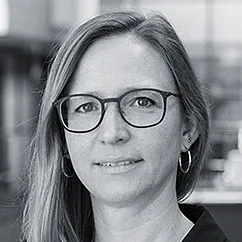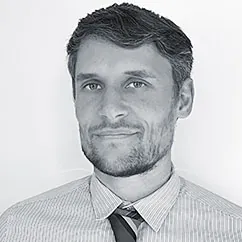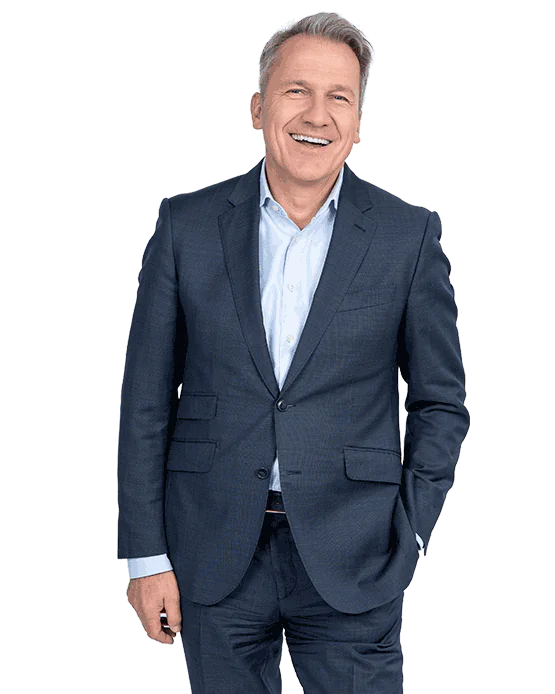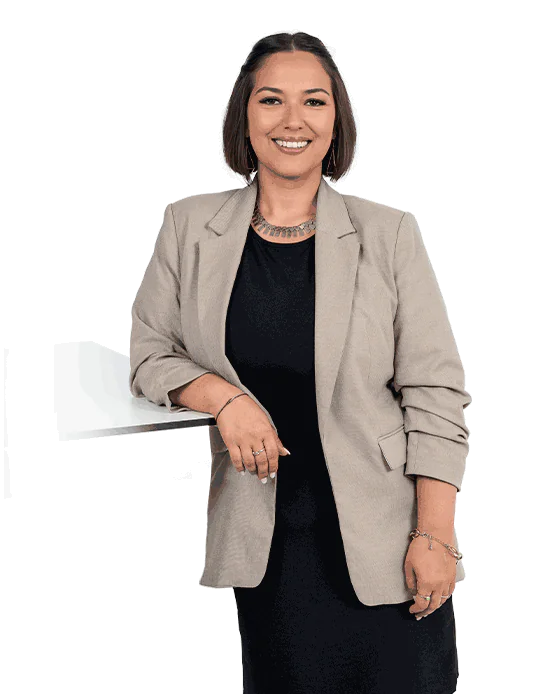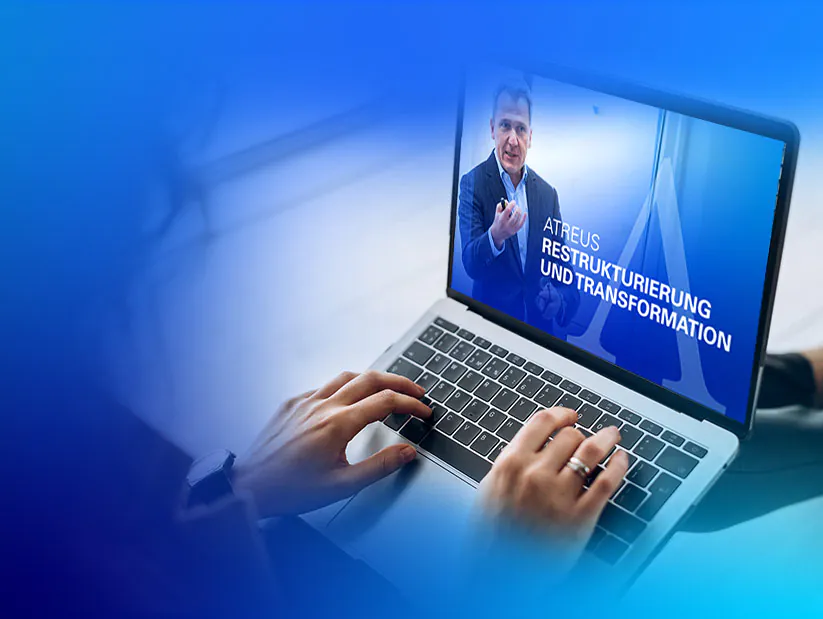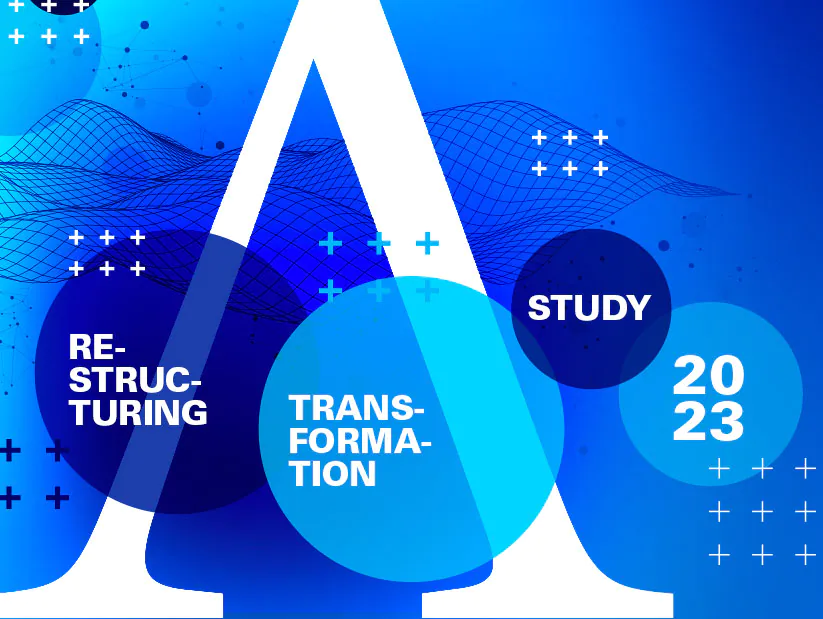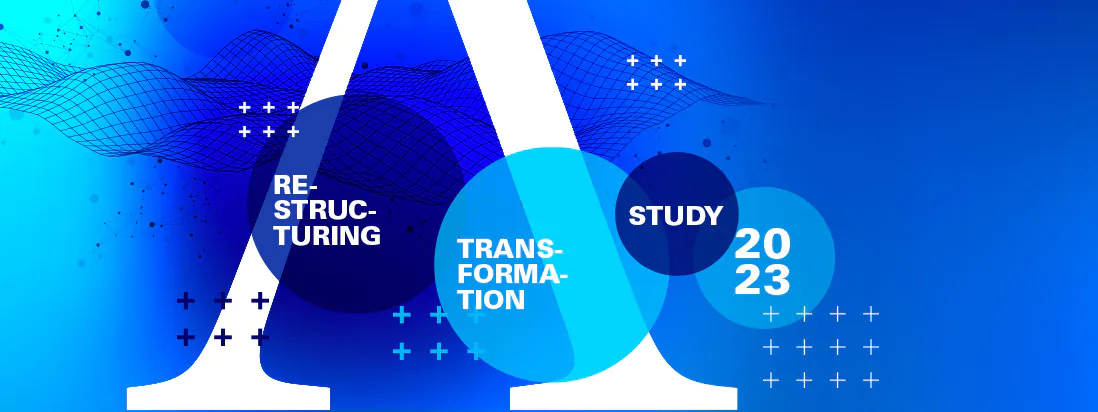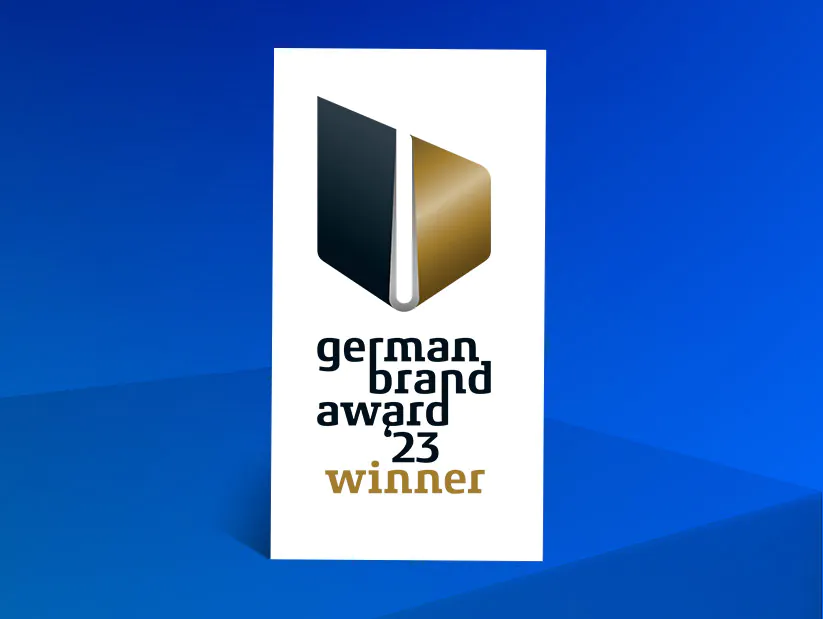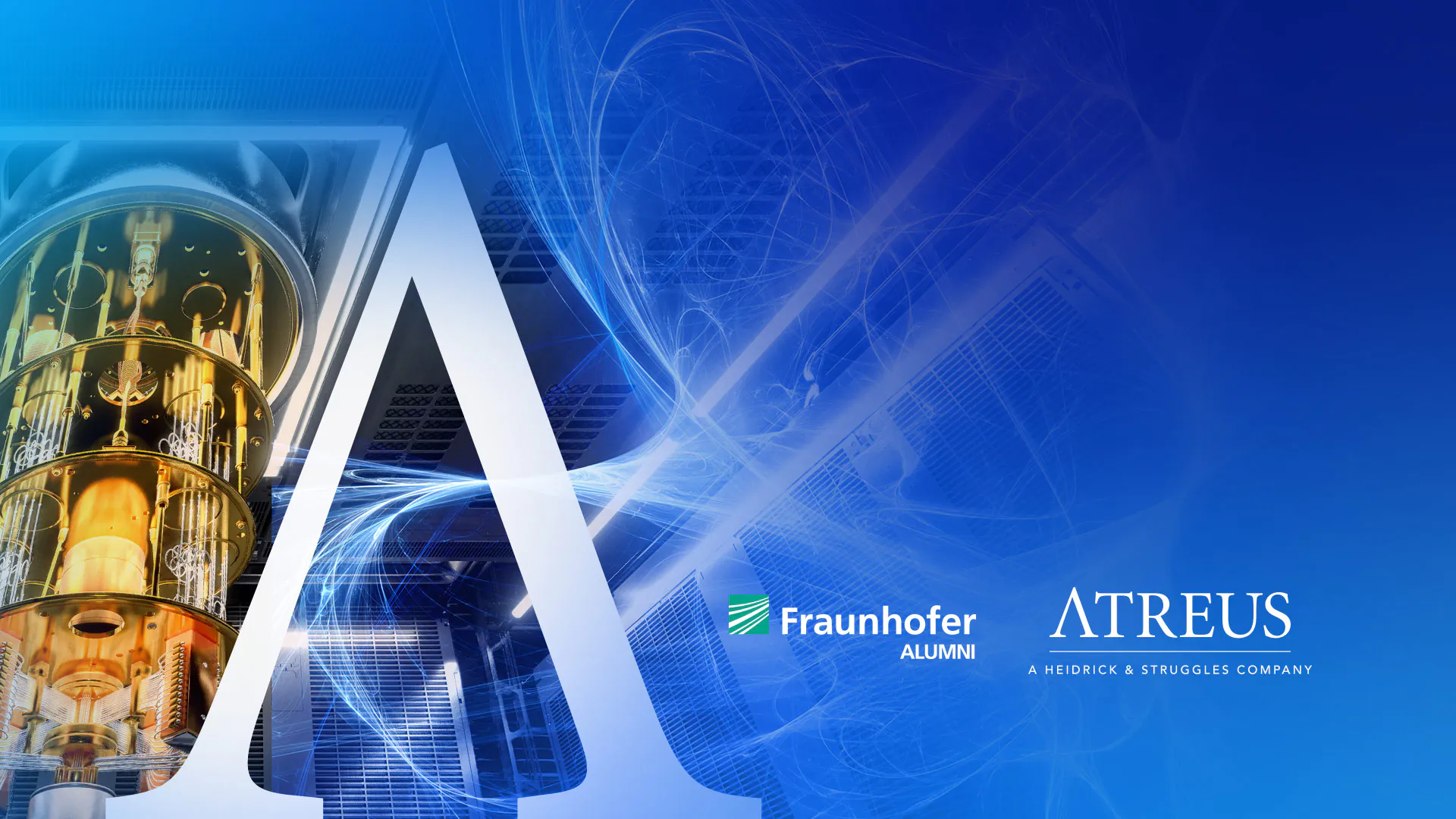
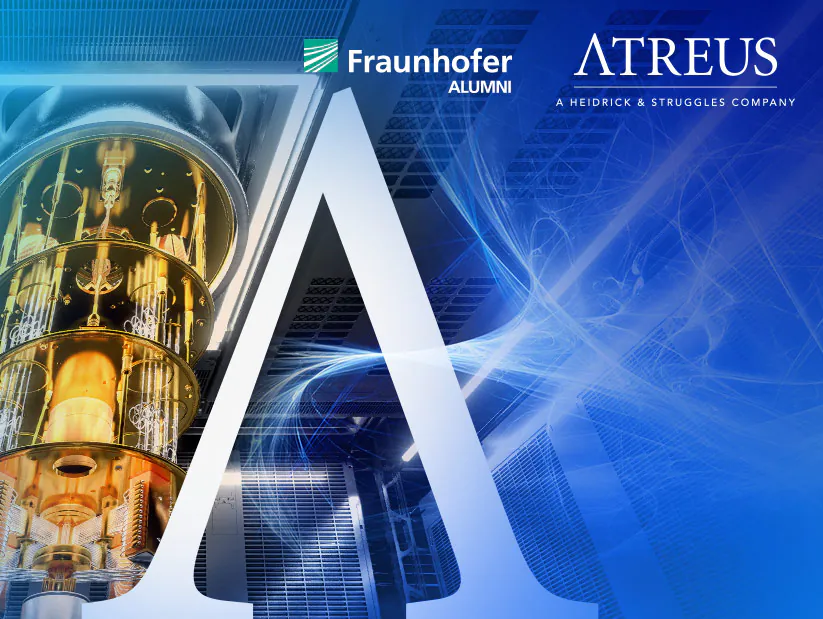
5. Innovation Lounge
Quantum Computing – Future becomes Reality
Science and management in dialogue – in cooperation with Fraunhofer Alumni: “Quantum computing – future becomes reality”.
July 12, 2023
You missed the event?
Watch the video recording with the most important learnings:

A summary of the innovation lounge quantum computing in 8 theses:
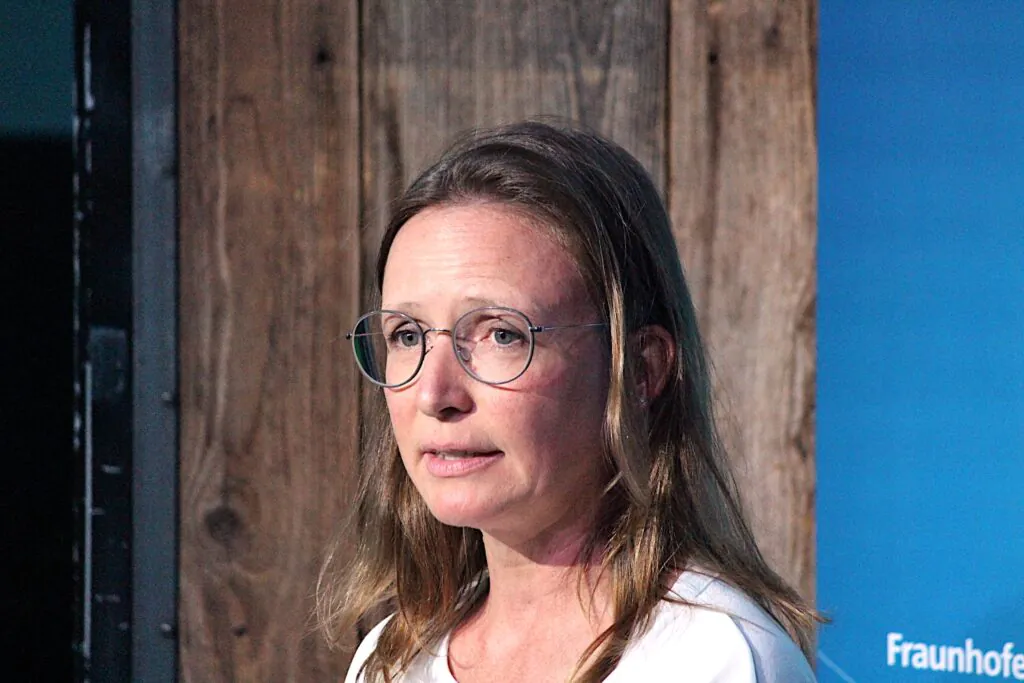
1. Quantum computing: Huge market potential, diverse use cases.
Quantum computing is one of the technologies that is being massively hyped at the moment, but is still hardly understood. Dr. Hannah Venzl is head of the department of project management of large-scale projects at Fraunhofer headquarters as well as the office of the Fraunhofer Competence Network Quantum Computing. She points out the enormous market potential of quantum computing: The market is expected to grow by more than 20 percent annually by 2030. The applications are diverse. They range, for example, from the development of drugs and vaccines to the real-time detection of credit card fraud and complex optimization problems in business: What is the ideal route for a parcel service provider? When does the plane need to be refueled and where? How do I load my shipping fleet in an ideal way?
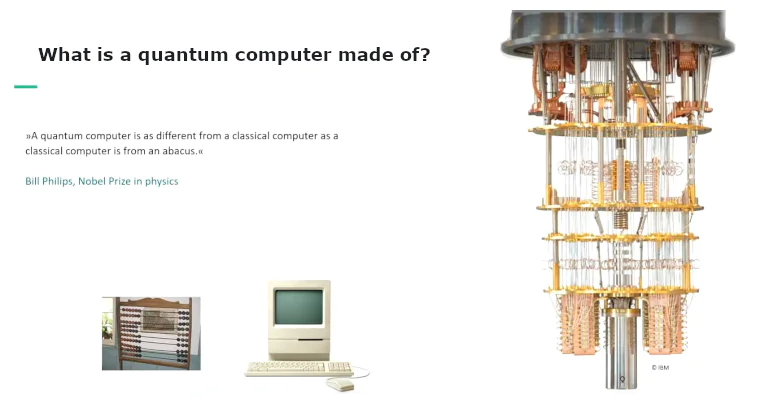
2. Quantum Computing: A leap such as from Abacus to PC.
Venzl quotes Nobel Prize winner Bill Philips. Years ago, he already stated that a quantum computer differs from a classical computer as much as the latter differs from an abacus. Venzl explains this with the help of the Bloch sphere: A classical computer operates with the smallest logical unit “bit”, which can hold the value 0 or 1. In quantum computing, on the other hand, we refer to qubits, which can adopt unequally more complex superpositions and can also be intertwined with each other. In the Bloch sphere, for example, the uppermost point represents the value 1, while the lowest point takes the value 0. However, the quantum computer – in contrast to the binary bit – can assume any point on the sphere. Therefore, the quantum computer is exponentially more complex than the classical computer as we know it.
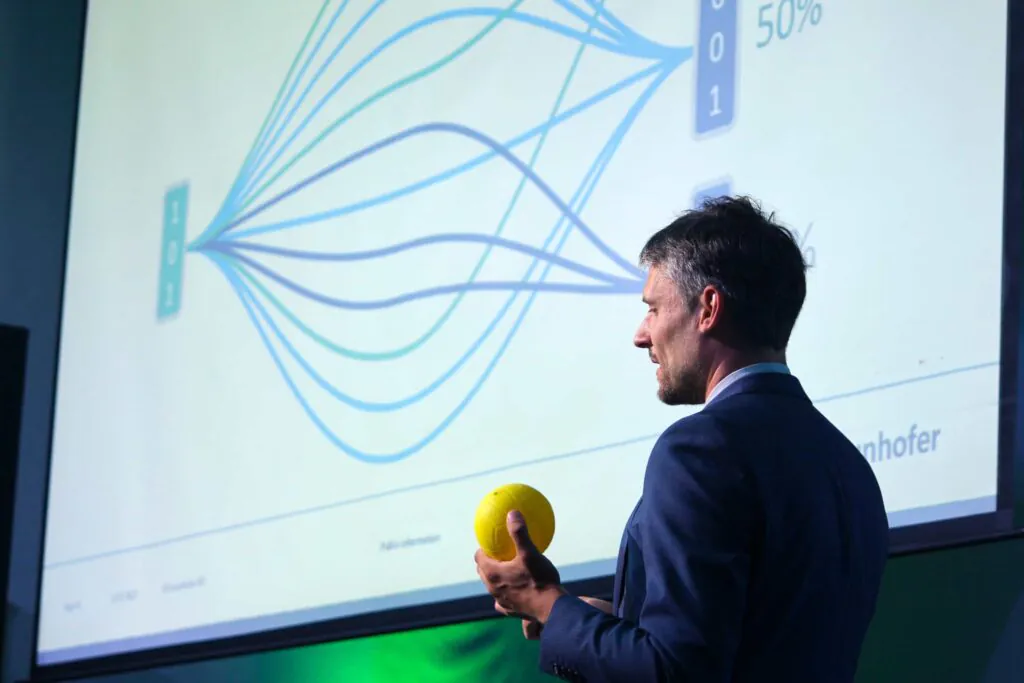
3. Quantum Computer is a Diva.
The challenges of quantum computing include the high complexity of manufacturing and operation. It requires very specialized hardware and new algorithms that are based on a fundamentally different logic and a new computing paradigm, and are therefore extremely expensive. A typical quantum computer is very large because of the cooling and control electronics. However, the chip of a quantum computer with 5 qubits itself is hardly bigger than a thumbnail. In addition, quantum computing requires an extremely low temperature; most hardware and software concepts must be cooled to absolute zero of 0° Kelvin (-273.15° C). The error rate is still comparatively high and the coherence times in which the quantum states remain stable are very short. Currently, therefore, no universal quantum computers exist, but only a few physical specimens called NISQ (Noisy Intermediate Scale Quantum). However, so far, no quantum advantage has been demonstrated that would make solving real-world problems more efficient than with conventional computers. Another bottleneck is the highly specialized expert knowledge that is required.
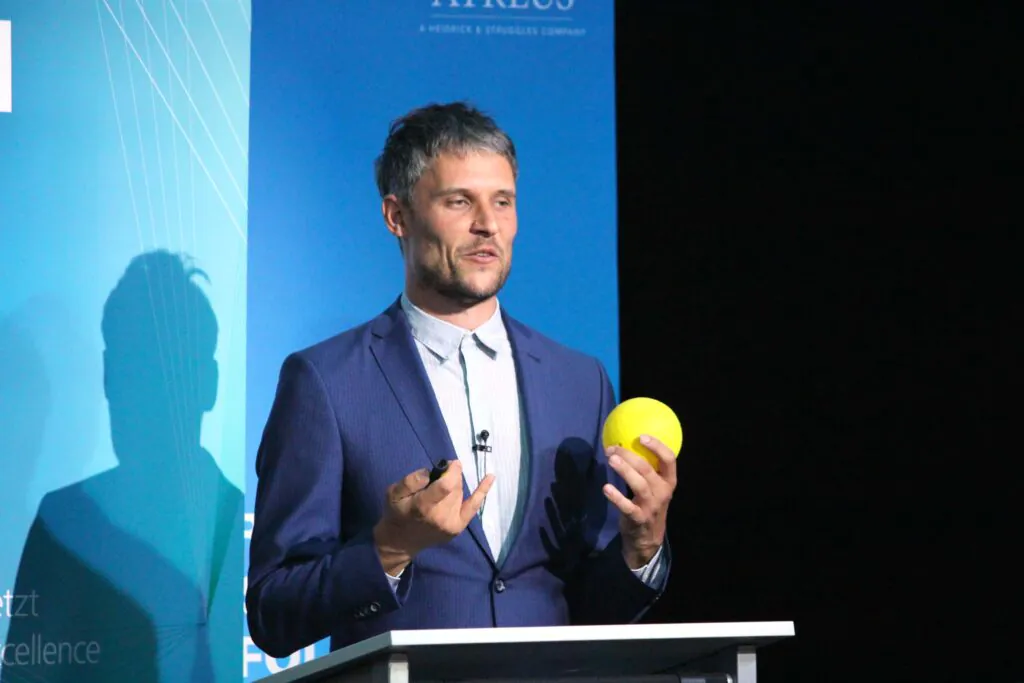
4. From 1982 to today: Development in Leaps and Bounds.
The idea of quantum computing was articulated for the first time in 1982 by physicist Richard Feynman, explains Dr. Florian Knäble, a quantum software engineer at Fraunhofer IAO. Feynman realized that nature is basically a giant quantum computer. In the 40 years since Feynman’s thesis, quantum computing has continued to evolve in leaps and bounds, yet it is still miles away from mass deployment today. In June 2023, IBM published the paper “Quantum Utility,” which addressed a real-world problem, but it can only be handled by the one selected quantum computer for which the problem was described. However, this is progress compared to the “Quantum Supremacy” moment that Google claimed in 2019. With a quantum computer that used 53 qubits, Google was able to create a quantum circuit at the time, but the problem to be solved was theoretical and very contrived.
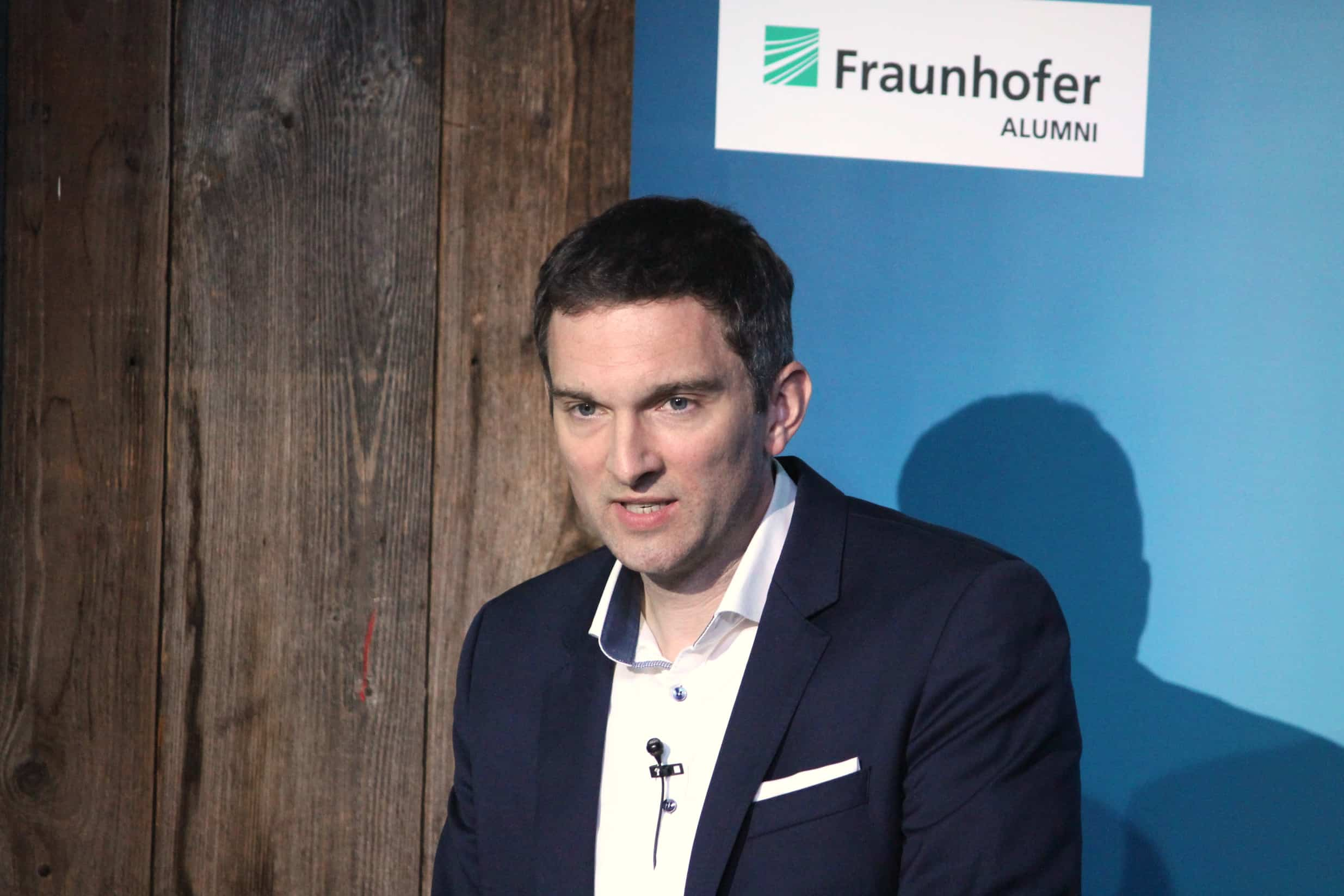
7. Artificial Intelligence and Quantum Computing – a Dream Combination?
According to Förtsch, quantum computing has analogies to neural networks, especially in terms of algorithms. He says this is interesting in questions such as the “airport gate assigning problem” at airports, which involves how quickly passengers should be directed to which part of the airport. Although the problem can be solved with a quantum computer, the question is whether an information theorist could not currently solve it even faster with a classical computer. “The greatest potential can be realized in a composite architecture of classical and quantum computers,” he says. Hannah Venzl adds, that questions of traffic control are generally interesting optimization problems that can be solved well in combination with AI and QC.
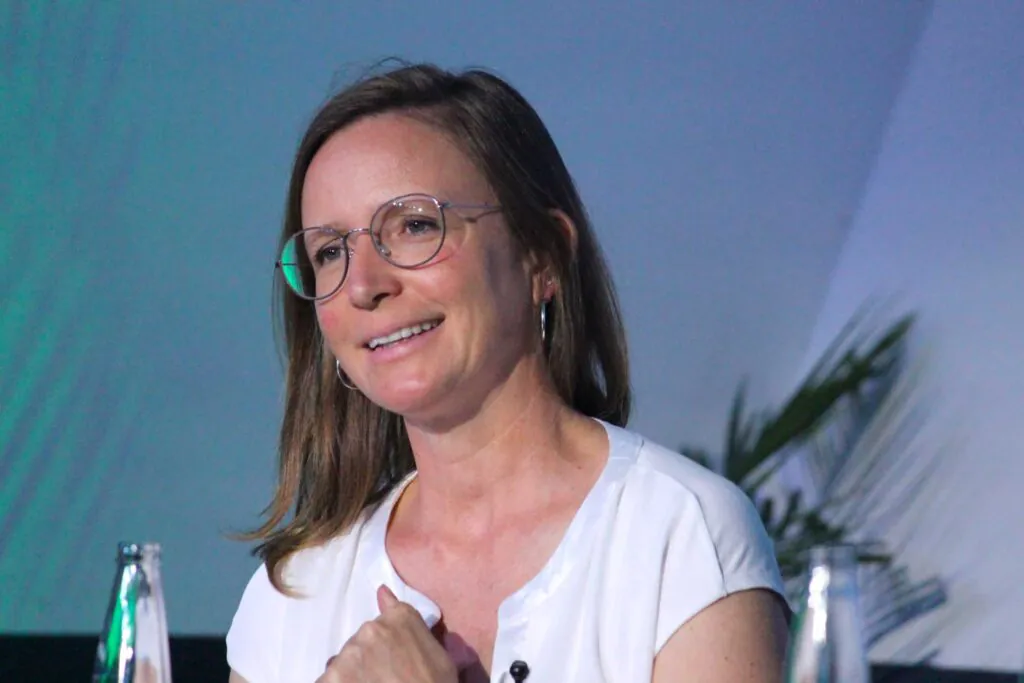
8. Europe has an international Opportunity in Quantum Computing.
Just four years ago, IBM had the world’s only true quantum computer, says Hannah Venzl. Since then, however, “an incredible amount has happened,” not only in the U.S. or (presumably) in China, but also in Europe. In Germany, quantum computing is currently being promoted very well, she says. Nevertheless, the U.S. is far ahead of Europe because venture capital is much more easily provided there. When public funding ends in Germany in 2026, Venzl and Förtsch agree, there is a real danger of a sellout to U.S. companies – despite Germany’s pioneering scientific role internationally. Förtsch appeals to support the technology: “Support quantum computing in your communications if you see an opportunity in it.”
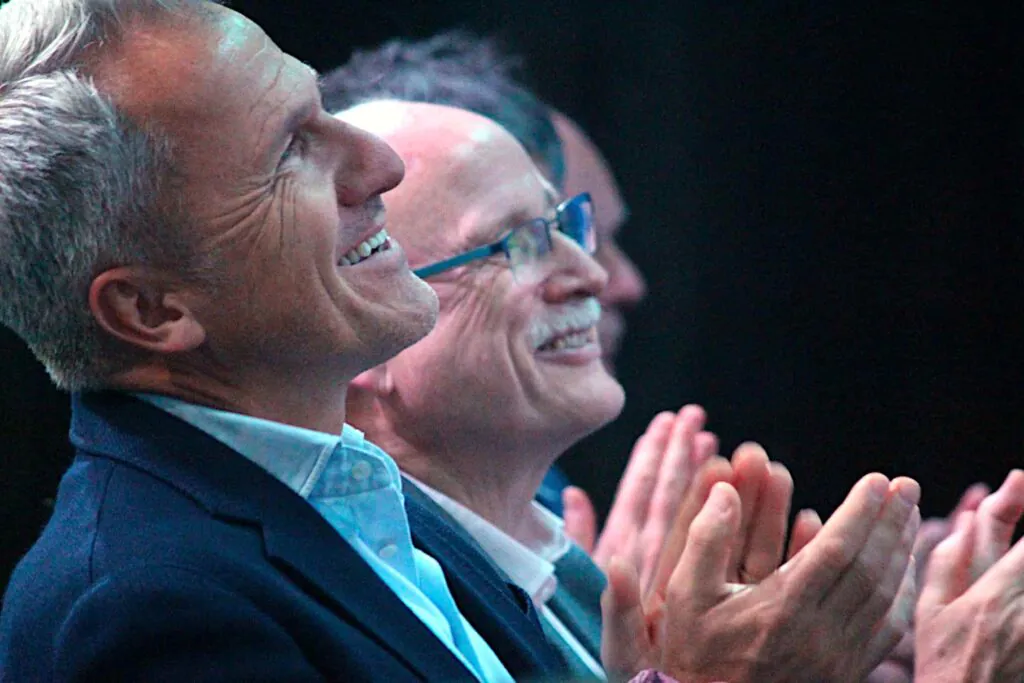
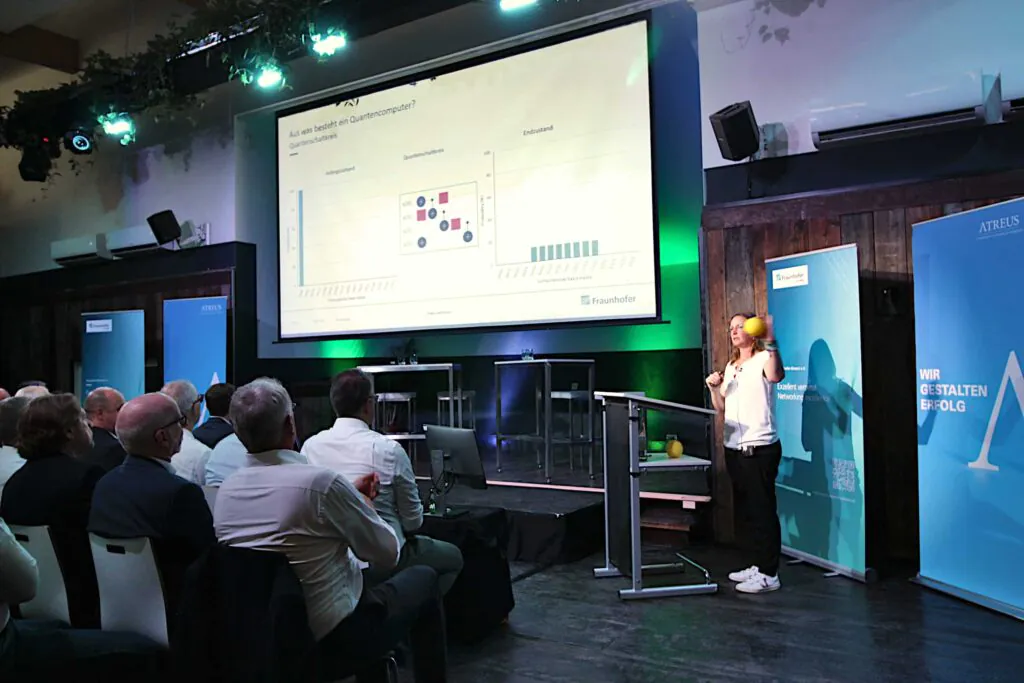
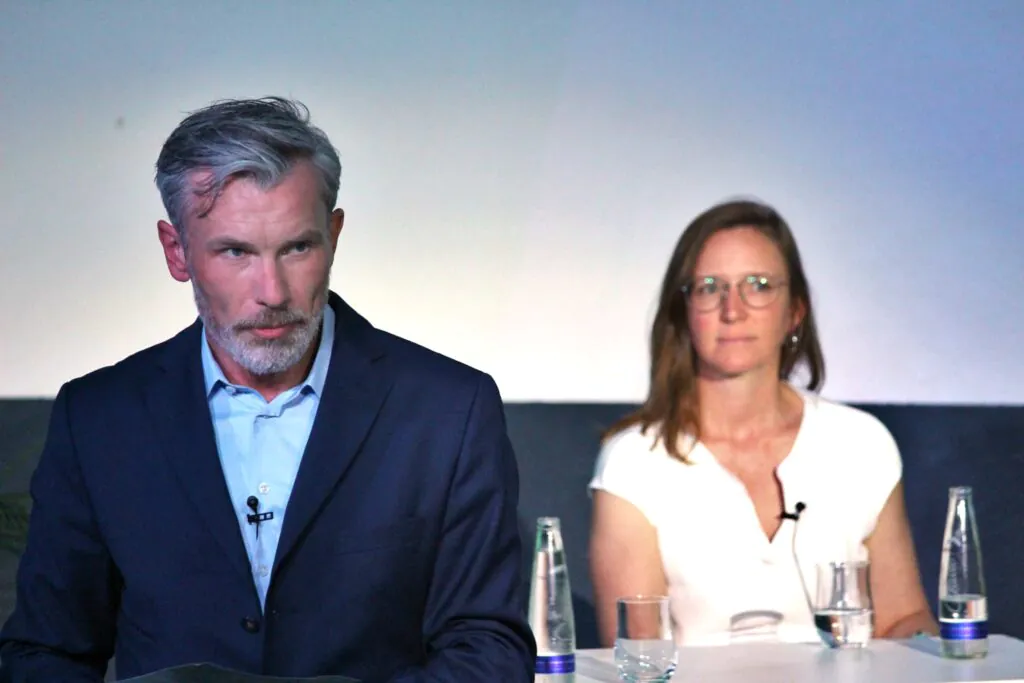


Our Speakers
Atreus hosts
These topics may also be of interest to you:
 +49 89 452249-540
+49 89 452249-540 
